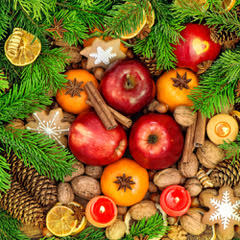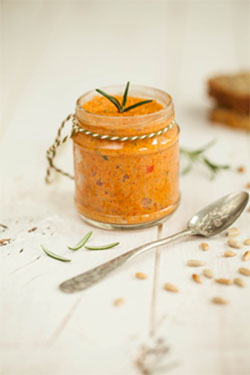The Christmas period reminds us of the importance of spending time with loved ones and relaxing and unwinding over the festive season with most of these things centered around enjoying good food.

The Christmas period reminds us of the importance of spending time with loved ones and relaxing and unwinding over the festive season with most of these things centered around enjoying good food. However, the food we tend to eat over this period can create challenges when trying to eat well. Research has shown that the average person gains 1kg during the festive season, however, it is possible to eat, drink and be merry without overdoing it…
The Party Season
We do a lot of celebrating over the Christmas period; from work parties to family get-togethers, it is a time filled with generosity, food and drinks a-plenty. See below for some helpful tips to make your party season a little bit healthier:
Before the Party:
- If you are going straight out after work try to have a small healthy snack (e.g. low-sugar wholegrain cereal, carrot and hummus, Greek yoghurt and fruit). This can help curve your hunger, so you don’t go straight for the high-calorie nibbles.
- If you are going to a meal that involves pre-ordering; why not choose a healthier option for instance grilled fish or a vegetable-based dish with soup to start.
During the Party:
- Studies have found that the greater variety of food offered, the more calories we consume. Therefore, why not make healthier decisions first as this might make it easier to say no to the higher calorie foods later.
- When it comes to festive drinks; try to opt for sugar-free mixers, smaller glasses of wine and beer and where possible and try including non-alcoholic drinks like sparkling water.
After the Party:
- The festive period is busy and means that you might not have time to follow your usual exercise routine. Why not try to build physical activity into your lifestyle? For example, walk up the stairs instead of taking the lift or get off the bus a few stops early and walk the rest of your journey.
- Try to get out for a brisk walk; 30 minutes at 4mph can burn up to 150 calories!
Christmas Day
Media reports suggest the average person consumes 6,000 kcal on Christmas day but some of the food traditionally eaten is packed full of nutrients. Here are 5 foods that will give you a boost of nutrients on Christmas Day:
| Brussel Sprouts | Brussel sprouts are a good source of vitamin C (an antioxidant and important for our immune system) and folate which is essential for healthy growth on a cellular level. They also provide fiber which is vital for gut health. If you have an 80g portion of Brussel sprouts with your Christmas dinner it counts towards one of your 5-A-DAY – tuck in! |
| Carrots | Carrots provide fiber and beta carotene which our bodies make into vitamin A. Vitamin A is important for normal vision and a healthy immune system. They can also count towards one of your 5-A-DAY if at least 80g is consumed. |
| Nuts and Nut Roast | Nuts provide a variety of nutrients, including potassium, iron, zinc, B vitamins and folate, and vitamin E. Nuts are also rich in monounsaturated fats, which can be good for our heart health when they replace saturated fats in the diet. Why not add nuts to vegetable dishes, desserts or as an alternative to meat in a roast? However, if you are trying to manage your weight, nuts are generally high calorie, so try to eat in moderation and avoid those with added salt or sugar. |
| Roast potatoes & Parsnips | It wouldn’t be Christmas without some roasties! In the UK, potatoes are a generous source of vitamin C and potassium. Parsnips are rich in fiber, manganese and folic acid – and are a great addition to a Christmas dinner. |
| Turkey | Turkey is a great source of protein, and without the skin, it is low in fat. It is also a source of B vitamins (vitamins B6 and B12) which helps to support a healthy immune system. |
New Year, New You!
In the New Year, we tend to make resolutions to be and live healthier, with diet and weight loss at the top of many people’s lists. However, many people turn to fad weight-loss diets instead of making lifestyle changes that can be sustainable and help to achieve your goals. A healthy diet has the power to reduce the risk of countless diseases. It is important to remember that what you are consuming can be more significant than losing a few pounds; a healthy diet should promote positive weight change.
Stuck on how to tackle a healthier lifestyle in January? Why not try the British Nutrition Foundation’s Try, swap, change planner
